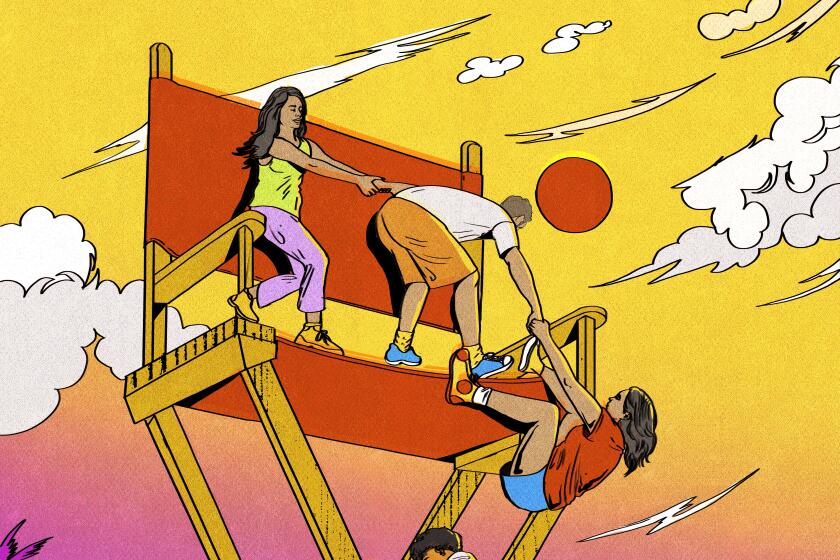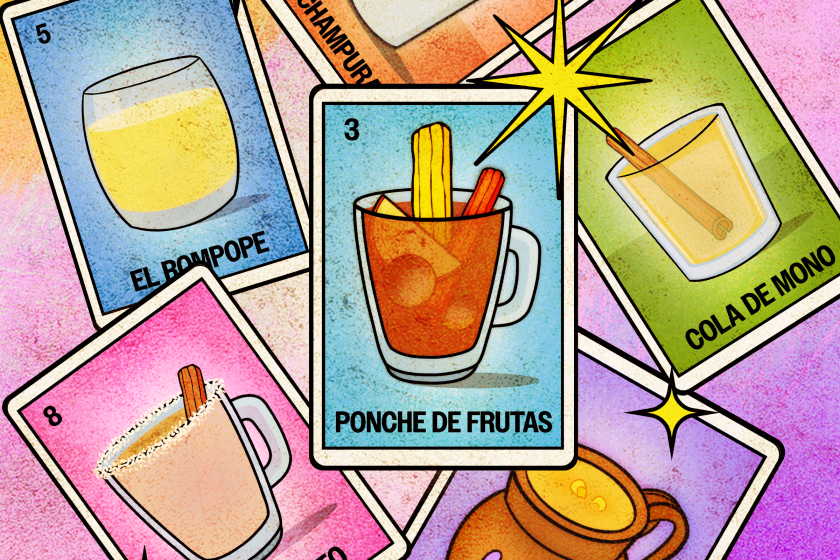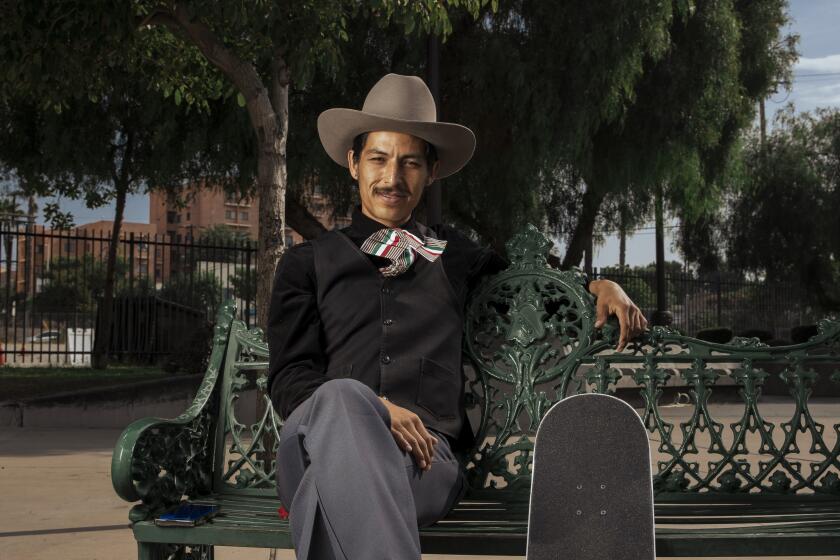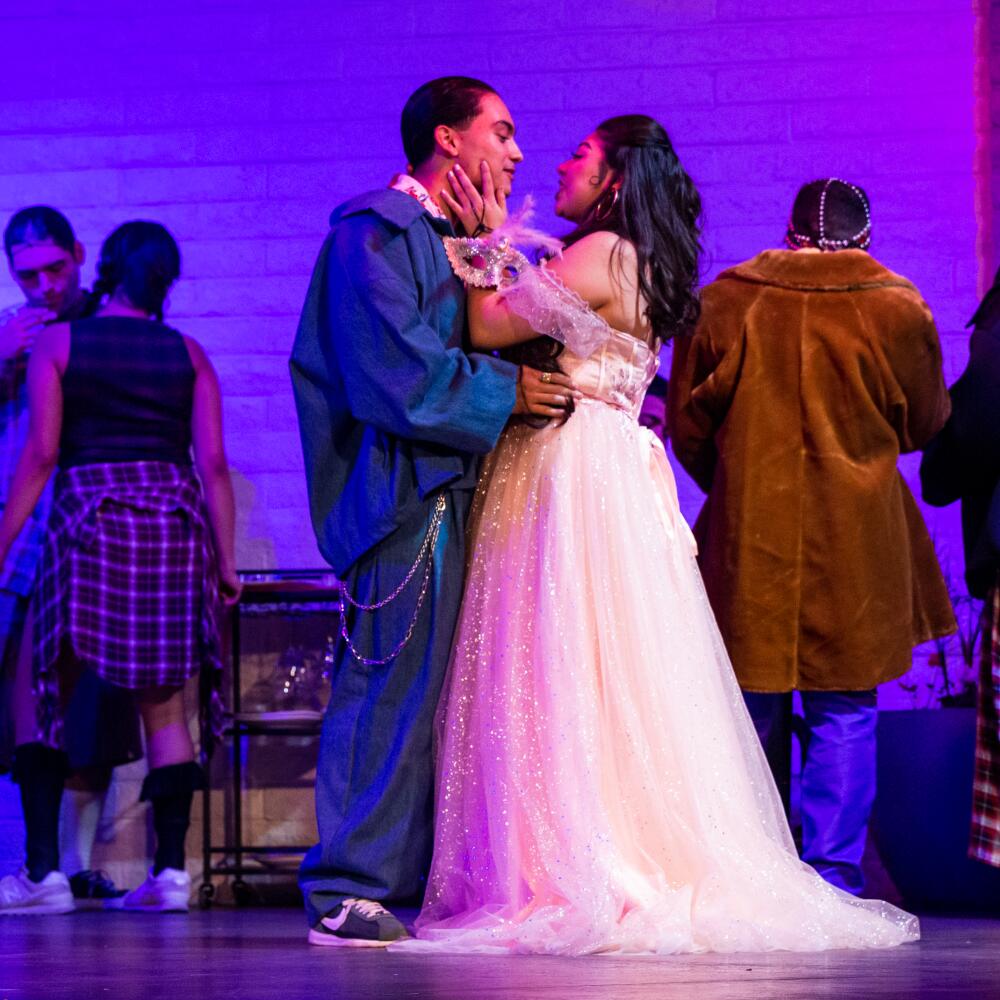
Lowriders, cholo wear, L.A. gang life and classic Chicano humor take center stage in “Romeo and Juliet: Rolling Through East L.A.,” a new stage production that remixes Shakespeare for the Latinx community. Performed by up-and-coming Latinx actors, many of whom are former gang members, the show is a testament to the perseverance and strength that acting can offer.
“Theater is an elite form of entertainment,” said Alex Alpharaoh, Guatemalan actor, founder of the No Fronts Actors Workshop and writer behind the Romeo and Juliet adaptation. “It’s gate-kept by the upper class. So I wanted to make it accessible by showing people that we can look like this and still tell this kind of story.”
For the record:
10:13 a.m. Dec. 21, 2023This story has been updated to clarify the original founders of Chola Vision.
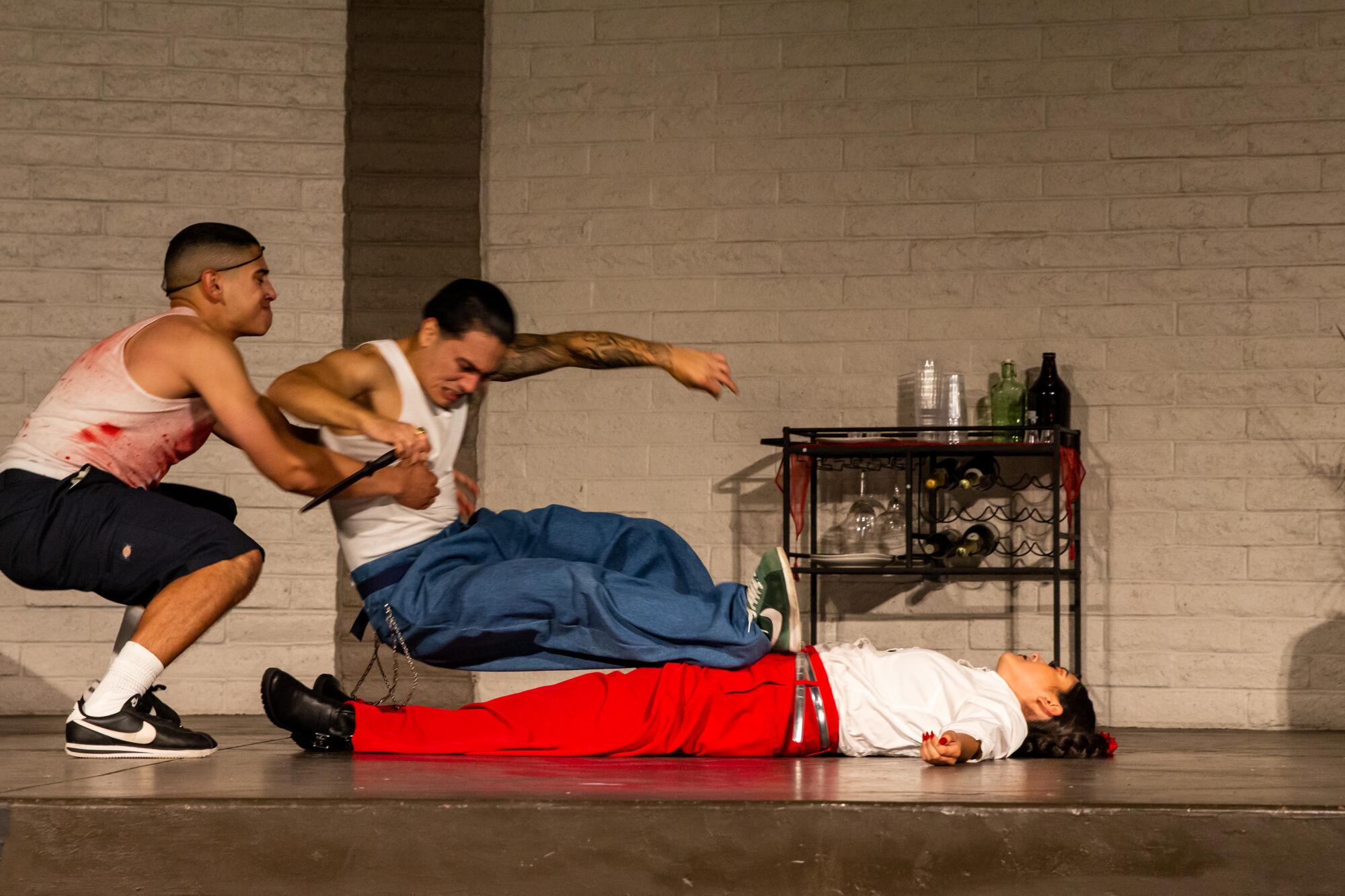
It’s the same iconic story many people know, even using the same iambic pentameter that Shakespeare popularized. This time, though, it’s full of Latinx talent both on and off the stage.
According to the recent report from the Annenberg Inclusion Initiative at USC, Latino representation in Hollywood has not shown any meaningful growth in the last 16 years.
Not only is the play set in ’90s East L.A., but it brings in cholo culture, cholo fashion (courtesy of Rio Uribe of Gypsy Sport), gang life, the poetry of street slang and Spanglish and love between partners, family and community.
But perhaps one of the most powerful aspects of the production is that many of the actors aren’t just pretending to be part of rival gangs on the streets of L.A.
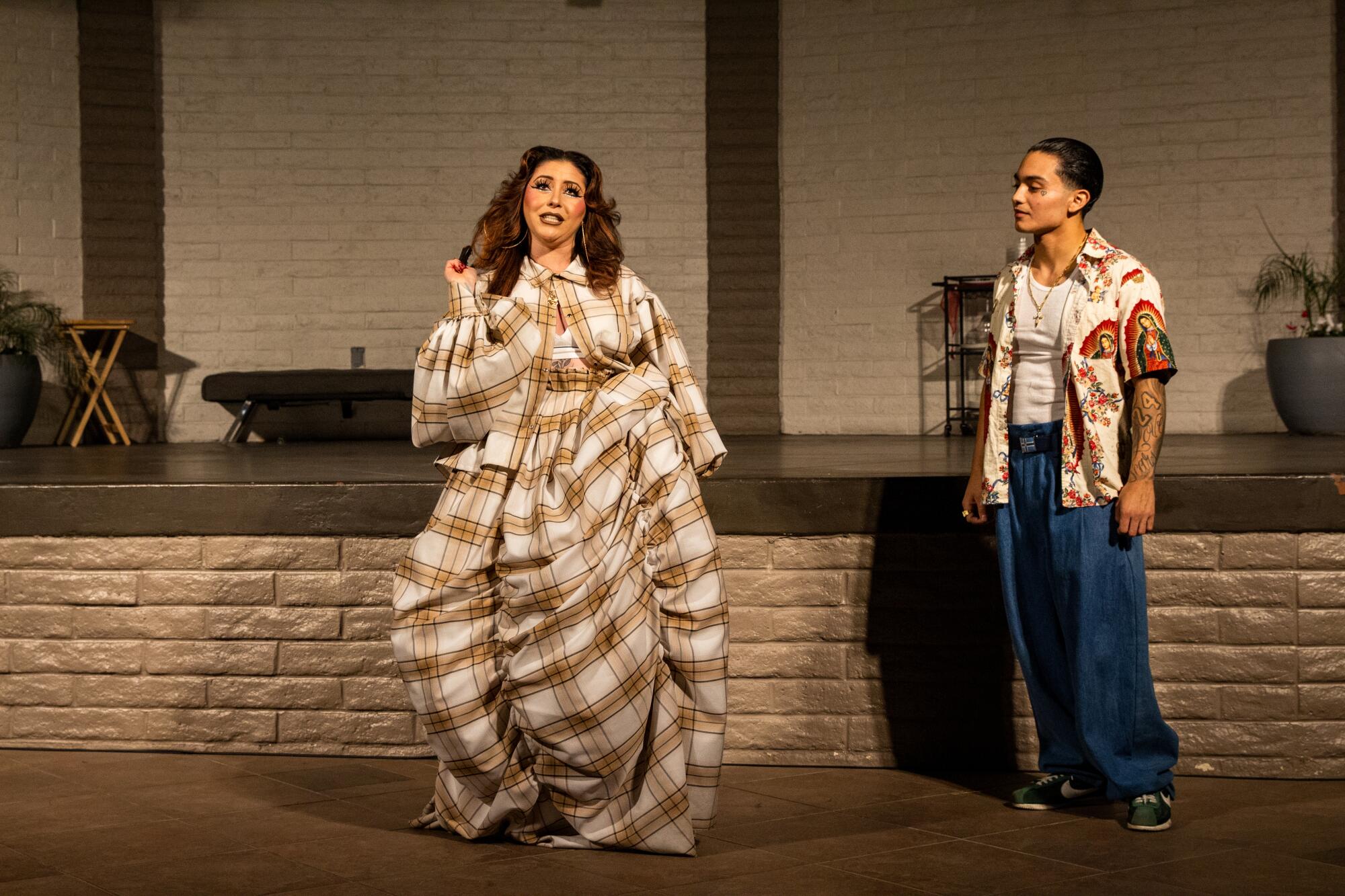
In addition to formerly being incarcerated or on parole, they’ve also lost loved ones to gang violence and struggled with drug addiction and mental illness in their real lives. For them, this story, especially the way it’s now being told, is not too far from their own experiences.
“Throughout my life, I’ve always been playing some character or another,” said Louie Soto, who plays Capulet. “I’m gay, so I always had to put on this machismo in front of everyone. When I was in and out of incarceration, I was afraid to be there and had to act like I wasn’t. When I got shot, my cousin died right next to me, and I lost my grandmother, I never really dealt with anything. I always kept it in.”
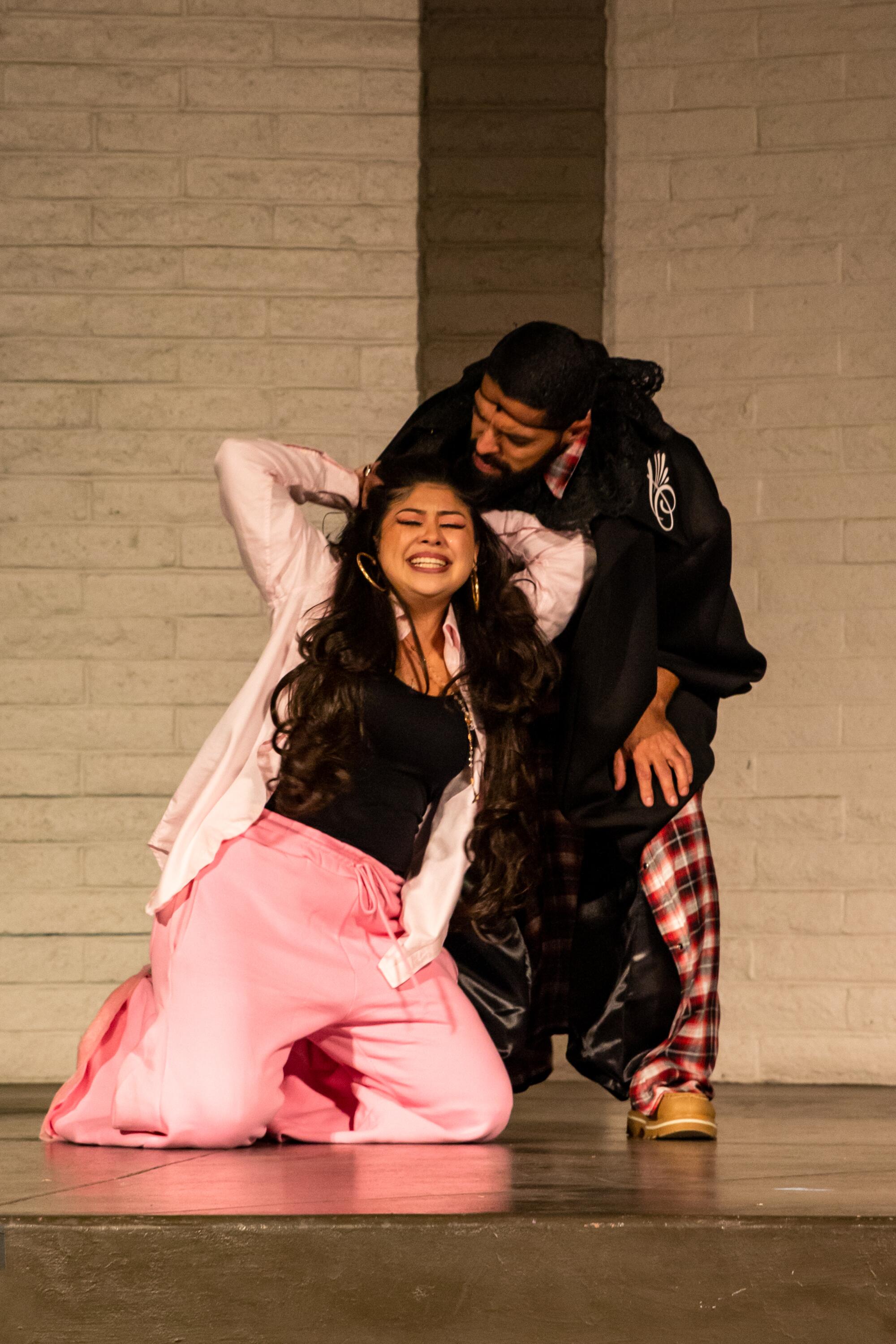
These struggles pushed Soto to find freedom in acting, embracing the emotions and vulnerability he had pushed away for so long to ground him in a fictional character.
Although drinks like rompope and champurrado have a specific country where they originated, other countries in the region have adapted their own variations.
Similar stories can be found in the lives of nearly every student in the NFAW. Some came to the workshop wanting to be an actor, like Maribel Chavez, who plays Juliet and has been in entertainment since she was scouted at a Walmart when she was 8. Others like Fernando Arredondo, who plays Prince Escalus, stumbled into the field after being incarcerated for 20 years, starting as a camera grip.
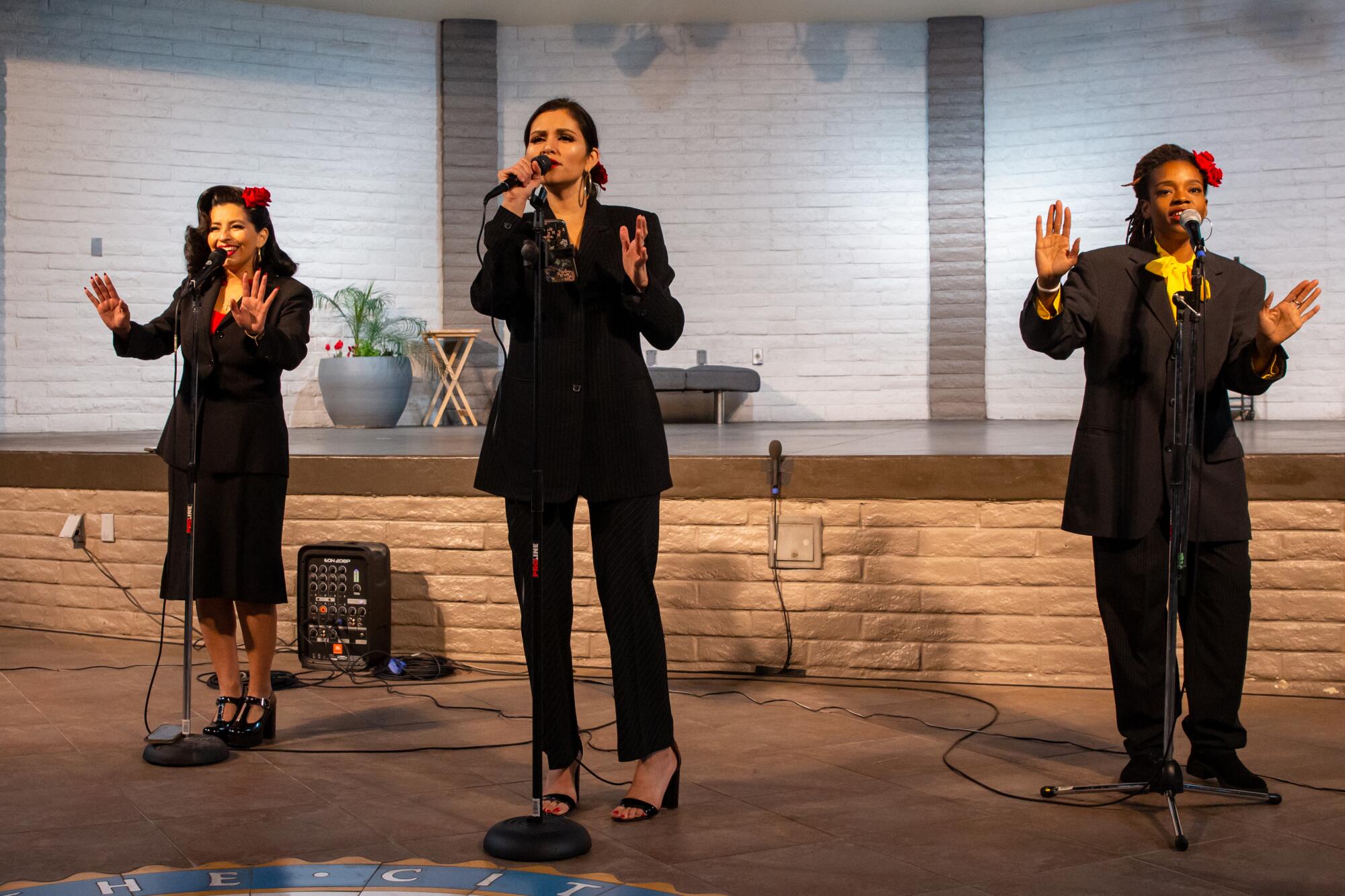
The production’s Lady Montague & Apothecary Lety Garcia, who is disabled, lost custody of her six girls as a result of a domestic violence case right as she started her first semester at NFAW. “Not having my kids with me gave me the urge to come back to acting,” Garcia said. “This has been my center and my reason and my motivation to continue to do better for them.”
No matter their background, it is acting, even in the face of ongoing struggle, that has been a saving grace and a second shot at life for these students.
Offering this opportunity is an ambitious undertaking that Alpharaoh said couldn’t have been done alone. And from the beginning, way before he conceptualized the showcase, the fight for better representation for the Latinx community in media has been a collaborative effort between him and his team.
He had the help of producer Berenice Molina-Valle who in 2017 founded From the Street to the Set, which recruits and manages former gang members for the big and small screens. As a former chola herself, she saw an opportunity to help people who needed work and a way to stay off the streets and out of prison.
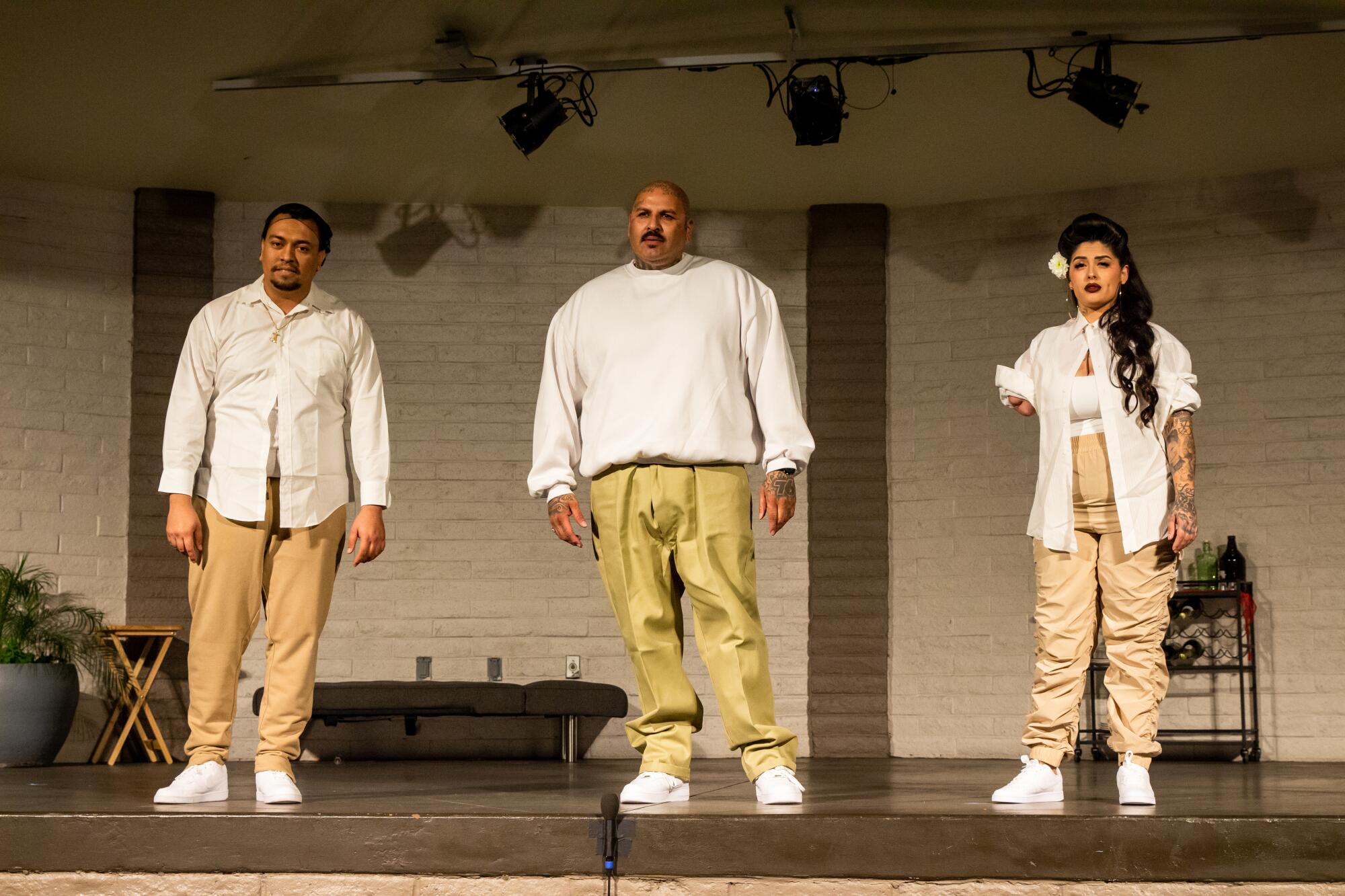
The bonus, of course, was bringing authenticity to film and TV that featured cholos. Eventually, she created a talent agency and a consultation practice.
Steve Corona is a Los Angeles skater who has gone viral on Instagram thanks to videos that show him dressed in what he calls his ‘Pati-Charro’ aesthetic.
“My goal was to keep our voices alive. We come from a culture that is being silenced and I didn’t want that [any] more,” she said. “I felt that if these people were taking our stories and profiting off of it, they should at least employ our people because I don’t want to see actors pretending to live a lifestyle that we’ve lived.”
The only thing missing was a space for these actors to show off their new skills. Luckily, Blanca “Moon Chola” Espinoza, who directed the play and happens to be Alpharaoh’s partner, was already one of the co-founders of the production company Chola Vision, along with Iris Almaraz and Gabriel Moore-Topazio
Now the owner, Espinoza directed music videos for classic songs integral to cholo culture. Eventually, it evolved to include backup dancers, storylines and sets, and finally to organizing, funding and directing NFAW’s productions. Growing up with cholas in her childhood, Espinoza has always envisioned creating a different narrative for that culture through her work.
“When you see a cholo, they’re often a thief, a criminal, a person who doesn’t care about the community. But what if that story was explored? What if you looked at the whole story of that person and what brought them there and what they’re doing to survive?” she said. “People make bad choices and not everyone’s a good person but I want people to know that there’s a multiplicity to it. They have hearts. They are comedic. They fall in love.”
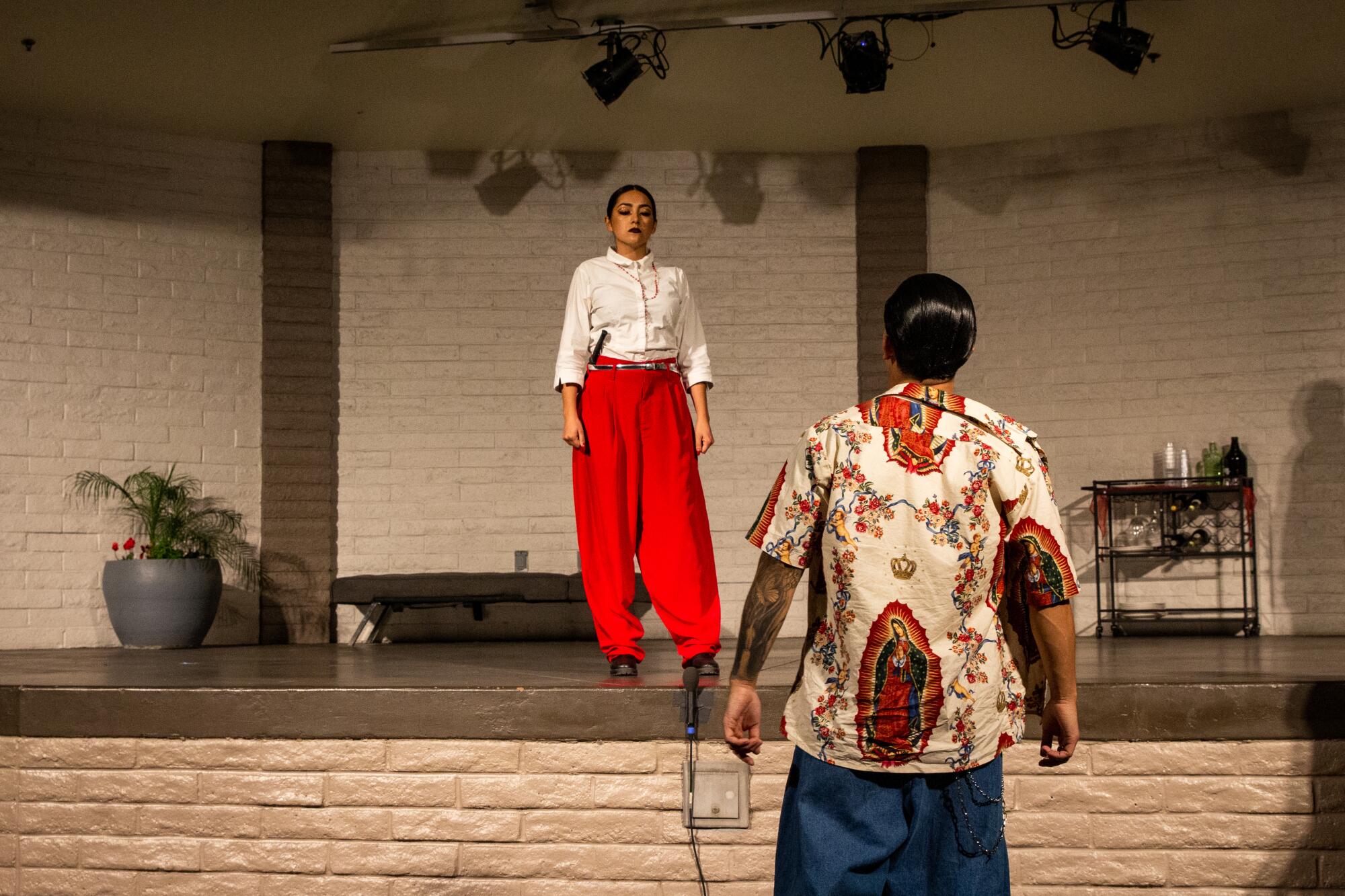
So while the workshop has opened up to actors of any background or experience, training former cholos and gang members remains the centerpiece. Through their separate organizations, the three — Alpharaoh, Molina-Valle, and Espinoza — have overlapped their skills to support each other’s creative visions and fight collectively for better Latinx representation.
“The play does show the thieves, the criminals, the violence, the anger, and their needs, their wants, their goals, their dreams,” Espinoza said. “There’s trauma and crime because of that trauma we’ve been through. But if you watch the whole play, you’ll see that there’s love under there too.”
Ultimately, however, this is a showcase of the beauty and strength of a theater group that has become a family, that has used the hardship of their past to carve out a different future for themselves and tell a different story through acting.
Whether you’re looking for self-care essentials, indoor plants or records for the collectors in your life, we’ve got ideas to help you shop small across L.A. County.
“I’m excited for the community to see our different capabilities,” Garcia said. “Some of us are short or tall or use a wheelchair. I have my missing limb. We’re bringing what we have and making the best out of it to present a show that’s going to be unforgettable.”
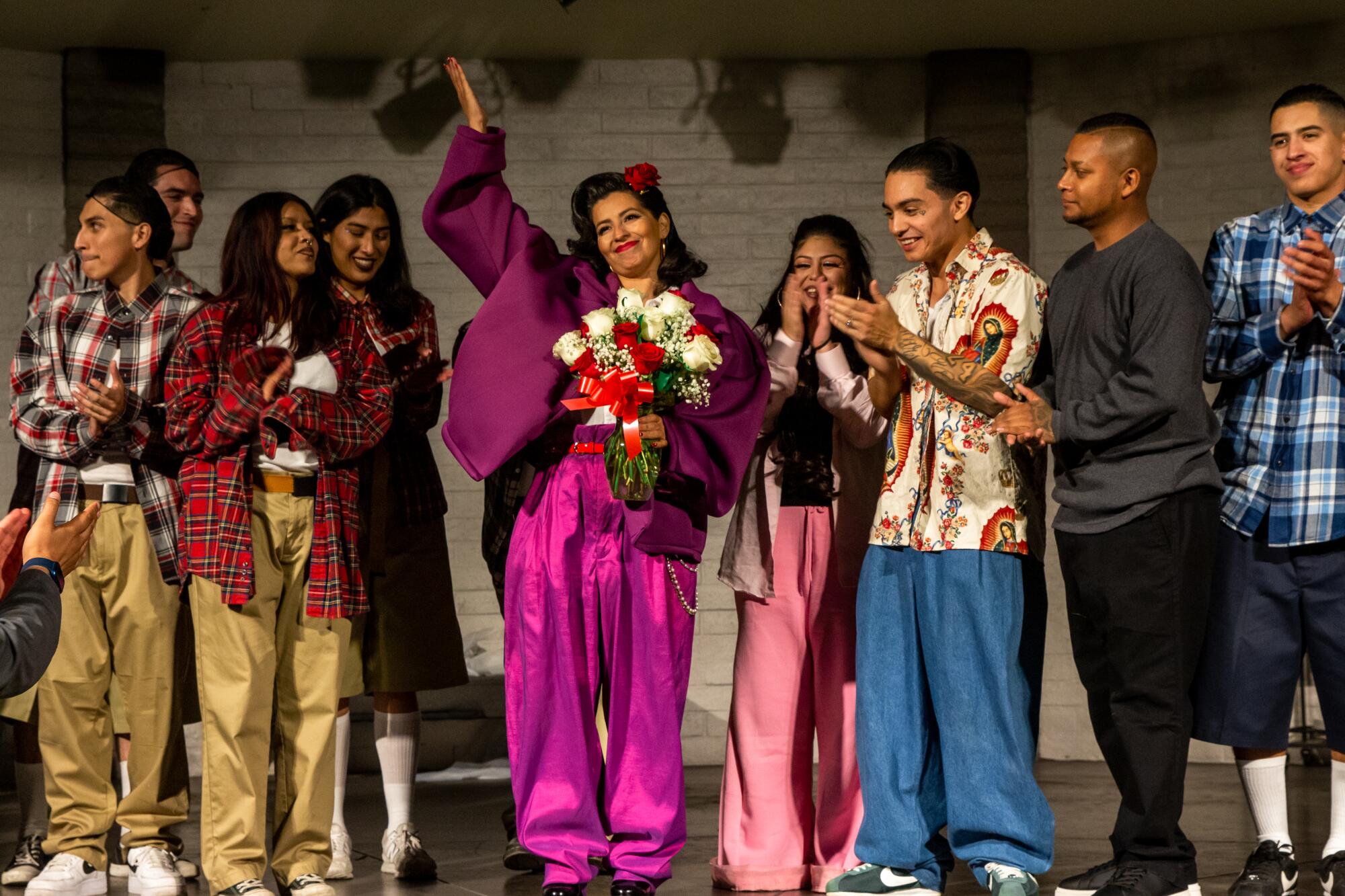
“Romeo and Juliet: Rolling Through East LA” is running now until Dec. 17. Tickets are available at cholavision.com.
Sofía Aguilar is a Chicana writer based in Los Angeles. Her work has appeared in the L.A. Times, Refinery29 Somos and New Orleans Review, among other publications. @sofiaxaguilar
More to Read
The Latinx experience chronicled
Get the Latinx Files newsletter for stories that capture the multitudes within our communities.
You may occasionally receive promotional content from the Los Angeles Times.
